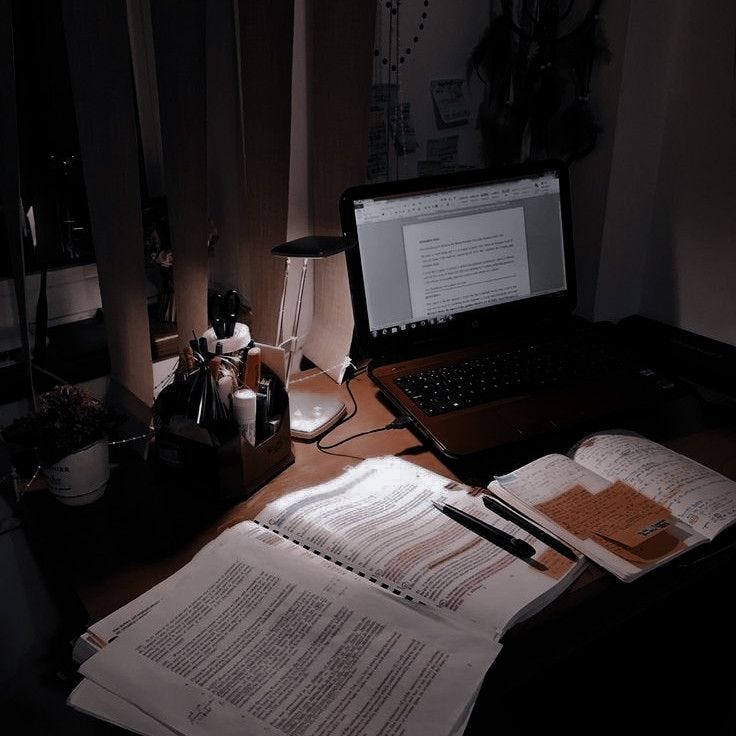Hi, and welcome! In today’s article, I will talk about various study strategies that I recommend and general study habits to follow. Before I continue, I just want to say that these study strategies and habits may not work for everyone, and although I can provide general advice, it’s important to try to customize these strategies and habits for yourself. I will be mainly focusing on general study habits in this article, with more advanced strategies next week. With that being said, let’s start!
The first habit that you should develop is to make some kind of plan to organize your studies. It’s really important to write down your goals and what you plan to achieve eventually. Writing down your goals also helps you keep focused and on track. You should also write down the due dates of your assignments, and leverage one of the tons of scheduling and calendar apps out there that can help you with staying organized. Knowing when your assignments are due lets you plan for large tests or quizzes in advance.
The second study habit that you should develop, although I’m sure you’ve heard of it a couple hundred times, is to not procrastinate. Procrastinating wastes a ton of precious time, and the quality of your work and studying is also likely to decrease as you procrastinate further. I get it: sometimes you just need a little break, and it ends up turning into a three-hour Instagram excursion. I’ve done that in the past as well. But you need to remember that you need to put in effort first in order to achieve results. My advice is to get yourself into the mindset of doing five minutes of work first, and from there, it gets a lot easier to do the rest of your work. Try to reward yourself with small timed five or ten-minute breaks after each hour of work to relax and recharge, and you’ll soon see improvements.
The third thing that you should look for is a good study environment. For me, my best environment is at home. While being friends is really fun and makes studying feel less stressful, it also massively decreases your productivity. What I personally do is complete all of my repetitive homework with my friends at the library, then go home and study by myself. Of course, that’s just what I’ve found works best for me, and you can go ahead and adopt any study environment that you want, as long as it helps you be productive.
The fourth habit that I’ve adopted is studying in advance for your classes. You want to space your studying out so that you continuously keep the topic fresh in your head. You can do this by starting to study for a test a week in advance, and best of all, you don’t even need to put in insane hours: thirty minutes or an hour a day for each subject will help you a lot more than just cramming all of the information the night before. Your brain is able to actively integrate the knowledge you learn every day, allowing you to retain more of it. Of course, if you’re not actively remembering the information that you’re studying, this won’t work at all. And that leads me to my fifth tip, which is to utilize active recall.
Active recall in a nutshell is when you actively challenge your brain to remember something instead of just passively learning it. You can do this by asking yourself questions and answering them, which is the way I do it. You can also do this with a friend, although I would say to still create questions on your own. By doing this, you’re making your brain actively try to remember information, and you can also figure out the gaps in your knowledge.
That’s it for today! Study habits can take a long time to form, but they’re well worth the work. They help you manage your time better, and help you do the best that you can do. As mentioned before, not all of these study habits may be for you: it’s up to you to figure out which ones work for you the best and how you should alter them. Remember to be patient with yourself: results take time, and you shouldn’t get frustrated at yourself for not achieving the results you want right away.


